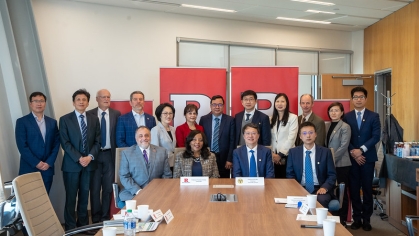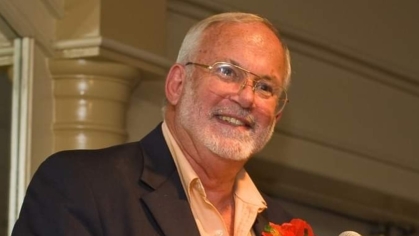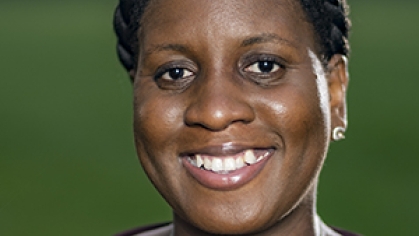Meet Engineering Honors Academy Dean

Jean Patrick Antoine received his BS in electrical and computer engineering from the School of Engineering (SoE) in 1995 and earned an MS in software engineering from Penn State Great Valley in 2005. After graduating from Rutgers, he worked as an electrical engineer and software engineer at Lockheed Martin Information Technology; a web developer for Dow Jones’ WSJ.com; and a senior application developer at Bloomberg before returning to SoE as a program development specialist in 2010. Today, as the School’s assistant dean of enrichment programs, he also serves as the director of the Rutgers School of Engineering Honors Academy (EHA) and James J. Slade Scholars Program; director of the NJ Governor’s School of Engineering & Technology; and the director of the Junior Science and Humanities Symposium at Rutgers.
How does admission to the Engineering Honors Academy work?
Students who have identified as high achieving and academically talented are selected from the pool of admitted students and invited to join EHA.
Among our current EHA community, many were accepted into competitive colleges and universities around the nation. Admission to EHA is a big factor in their decision to attend Rutgers as it is a unique learning environment in which they can explore exciting and challenging academic and research opportunities.
The program offers a specialized curriculum of advanced level courses, research opportunities, and co-curricular enrichment programs like a speaker series and service projects.
Our Engineering Honors Academy students demonstrate remarkable academic ability.
Jean Patrick Antoine
What is your philosophy as director of the Engineering Honors Academy?
It’s a very competitive program. Our Engineering Honors Academy students demonstrate remarkable academic ability. We recruit students who we are passionate about learning. Their intellectual curiosity is promoted. And, it goes without saying that these students all come in with deep potential to lead.
What is the biggest benefit for EHA students?
I think the biggest benefit is being part of a community of like-minded students, who are not only academic high achievers, but who are all in pursuit of excellence. Being part of this kind of community is enriching.
Has your Rutgers education affected how you approach your job?
Having been an SoE student and having graduated and gained experience in numerous industry positions, I feel I’m well-equipped to have a conversation with students about the opportunities they’d like to consider in the future and about what you can do with a Rutgers University degree.
Why did you choose to go to Rutgers?
Growing up in Westfield, NJ, one of my close friends went to Rutgers, and I spent time on campus visiting him during my junior year in high school. I liked the campus, people, environment -- and the ambience.
I’d wanted to be an architect – I loved math and drawing, especially in high school, when I had my own comic book. But then the summer after my freshman year, I worked at a startup company started by two Hewlett Packard engineers. I was soldering boards and testing them, and became intrigued by the electronics.
What came next?
If it weren’t for my engineering degree, I wouldn’t have had the careers that I’ve had – I worked for industry for many, many years. I spent four-and-a-half years at Lockheed Martin building weather satellites and one year at Dow Jones working on WSJ.com. Then, I was at Bloomberg for nine years as a senior application developer. And then I came here.
What led you to switch careers and return to SoE as an administrator?
There were transformative moments that had me reflect on I wanted to do and the impact I wanted to make on society – and led me to apply to this job at Rutgers.
I’d reflected on what I’d done career-wise to find my vocation and the things I’m most passionate about.
I do love to help people. This job’s sole purpose is to help people successfully get from one place to the next and from one great height to another great height.
What do you know now that you wish you had known as a student?
I focused so much when I was a student on grooming myself technically but missed the idea of growing myself professionally. You can focus too much on getting skills, but the art of understanding people, and developing emotional intelligence to interact with people is just as important. I learned this in the field. Being more deliberate about these things is something we encourage in our EHA students.
What advice do you have for current students?
Consider minoring in a topic outside of your domain of expertise, such as a language, or other courses in the humanities., Exercise your ability to learn things that are non-technical when you take required classes outside of engineering. I would also suggest a study abroad to open your eyes to more things.


